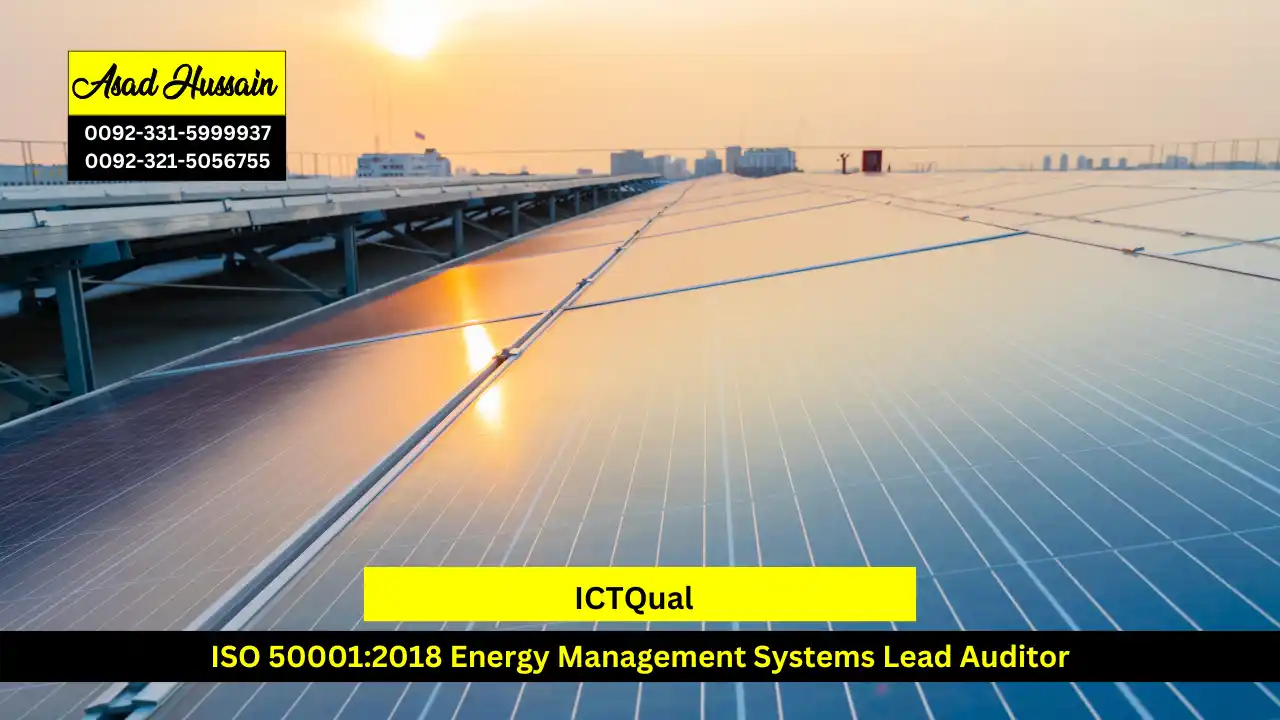In today’s rapidly evolving energy landscape, the importance of effective energy management cannot be overstated. Organizations worldwide are increasingly recognizing the need to optimize energy use, reduce costs, and minimize environmental impact. This is where the ISO 50001:2018 Energy Management Systems (EnMS) standard comes into play. For professionals looking to lead and audit such systems, becoming an ISO 50001:2018 Energy Management Systems Lead Auditor is a significant career milestone. This blog post delves into the key aspects of this certification and its importance in the realm of energy management.
ISO 50001:2018 is an international standard that provides a framework for establishing, implementing, maintaining, and improving an energy management system. The primary objective is to enable organizations to follow a systematic approach in achieving continual improvement in energy performance, including energy efficiency, energy use, and consumption.
In an era where energy efficiency and sustainability are paramount, the role of an ISO 50001:2018 Energy Management Systems Lead Auditor is more critical than ever. This certification equips professionals with the knowledge and skills to lead audits, ensuring organizations optimize their energy use and contribute to a sustainable future. Whether you are looking to advance your career or make a significant impact in the field of energy management, becoming a certified ISO 50001:2018 Lead Auditor is a rewarding and impactful choice.
Program Highlights
Mandatory Units
- Introduction to ISO 50001:2018
- Energy Management Fundamentals
- ISO 50001:2018 Requirements
- Auditing Principles and Practices
- Audit Preparation and Documentation Review
- Conducting On-site Audits
- Audit Reporting and Follow-up
- Responsibilities of EnMS internal auditors
- Audit Team Management and Communication
- Integration of EnMS internal audit with other management systems
- Planning, preparation, conducting and documentation of EnMS internal audit
- A minimum of a bachelor’s degree or equivalent qualification in a relevant field such as engineering, environmental science, business administration, or a related discipline.
- Candidates should possess a minimum of three to five years of practical experience in energy management, environmental management, auditing, or related fields. Relevant work experience may include roles such as energy manager, environmental consultant, auditor, sustainability coordinator, or similar positions.
- Familiarity with the ISO 50001:2018 Energy Management Systems standard and its requirements is highly recommended. Candidates should have a basic understanding of energy management principles, energy efficiency concepts, and relevant legislation and regulations.
- Since the course is conducted in English, proficiency in the English language is essential to comprehend course materials, participate in discussions, and complete assessments effectively.
- Basic technical skills, including proficiency in using computers, conducting data analysis, and understanding mathematical concepts, are beneficial for successfully completing the course requirements.
Introduction to ISO 50001:2018
- Understand the scope and purpose of ISO 50001:2018.
- Identify the benefits of implementing an Energy Management System (EnMS).
- Recognize the structure and key components of the ISO 50001:2018 standard.
Energy Management Fundamentals
- Comprehend basic energy concepts and terminologies.
- Analyze the importance of energy management in reducing costs and environmental impact.
- Identify common energy performance indicators (EnPIs) and their significance.
ISO 50001:2018 Requirements
- Understand the specific requirements of ISO 50001:2018.
- Interpret the clauses and sub-clauses of the standard.
- Recognize the documentation and records needed for compliance.
Auditing Principles and Practices
- Understand the principles of auditing as per ISO 19011.
- Apply auditing techniques and practices to assess compliance.
- Differentiate between different types of audits (internal, external, and third-party).
Audit Preparation and Documentation Review
- Prepare an effective audit plan based on organizational needs.
- Conduct a thorough review of documentation prior to the audit.
- Identify key documents required for the audit process.
Conducting On-site Audits
- Perform on-site audit activities, including interviews and observations.
- Identify and gather objective evidence to support audit findings.
- Evaluate the effectiveness of the EnMS implementation.
Audit Reporting and Follow-up
- Compile audit findings into a comprehensive audit report.
- Provide clear and actionable recommendations for improvement.
- Follow up on corrective actions to ensure they are effectively implemented.
Responsibilities of EnMS Internal Auditors
- Understand the roles and responsibilities of an internal auditor.
- Maintain impartiality and objectivity during the audit process.
- Ensure confidentiality and security of audit information.
Audit Team Management and Communication
- Lead and manage an audit team effectively.
- Foster clear and effective communication within the audit team.
- Resolve conflicts and ensure team collaboration.
Integration of EnMS Internal Audit with Other Management Systems
- Identify opportunities for integrating EnMS audits with other management system audits (e.g., ISO 9001, ISO 14001).
- Understand the benefits and challenges of integrated audits.
- Develop strategies for effective integration and implementation.
Planning, Preparation, Conducting, and Documentation of EnMS Internal Audit
- Develop a comprehensive internal audit plan.
- Prepare audit checklists and tools for effective auditing.
- Conduct the audit in accordance with established protocols.
- Document audit findings and maintain accurate records.
The ISO 50001:2018 Energy Management Systems Lead Auditor course is designed for professionals who are passionate about energy efficiency and sustainability. This course is ideal for energy managers, sustainability consultants, environmental engineers, and auditors seeking to enhance their expertise in energy management systems. It is also suitable for individuals responsible for implementing, maintaining, or auditing energy management systems within their organizations. Whether you are an experienced auditor looking to specialize in energy management or a professional aiming to advance your career in sustainability, this course provides the essential knowledge and skills to effectively lead ISO 50001:2018 audits and drive significant energy performance improvements.







